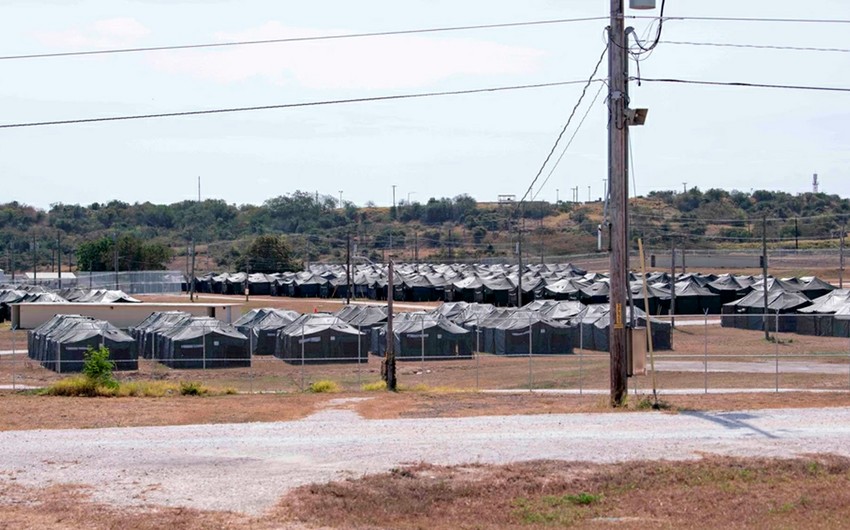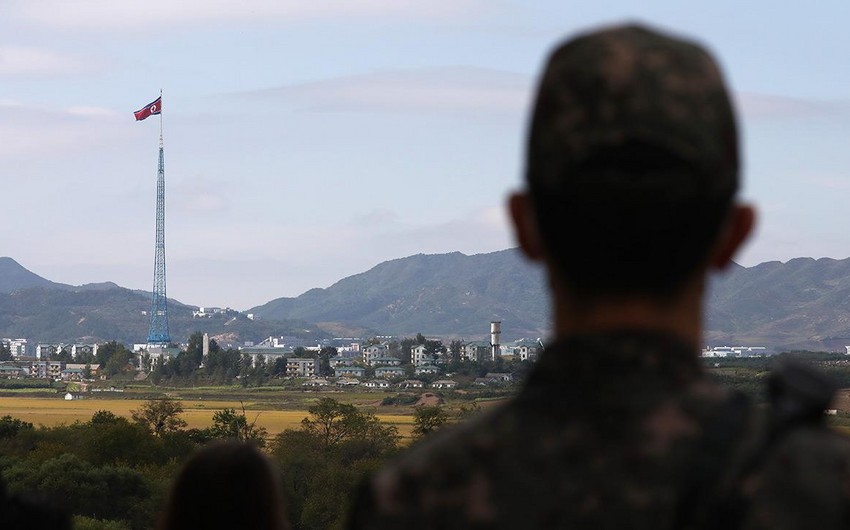Eurasia Diary presents an article titled "Kazakhstan’s Referendum and OSEC Initial Report: A Response Article" published in National Herald Tribune.
Article was written by Dr Mehmood Ul Hasan Khan, expert on regional and geopolitical studies.
While visiting the Republic of Kazakhstan the Chinese Foreign Minister Wang Yi “supported” the outcome of most recently held referendum and termed it “good” for the state and its people alike. All the requirements of the electoral legislation, electioneering process and the country’s international obligations about holding of impartial of referendum were met to hold an open, fair, free and transparent referendum on June 5, 2022.
There were no violations on the day of referendum although some technical laps were reported but that could not cast doubt on the legitimacy of the referendum. It was absolutely “open”, “transparent” and “democratic”.
While addressing the people of Kazakhstan, the President Kassym-Jomart Tokayev labeled the referendum as a “milestone” in the history of his country, vividly reflected the national “unity” and readiness for “real” changes.
Furthermore, president Tokayev resultantly termed it “Second Republic” in which high turnout proved the maturity and responsibility of Kazak society. In his opinion it was show of true “patriotism” which significantly contributed to the sustainable development of Kazakhstan.
Moreover, president Tokayev rightly assessed that the amendments to the “Basic Law” proved beginning of the country’s reforms towards complete modernization. He hoped that based on the amended Constitution a more effective model of functioning of all government institutions and organs will further strengthen mechanisms of checks and balances in the country.
He concluded that gradual political changes will facilitate the development of the national economy, and strengthen national entrepreneurship. He stressed the need to form transparent and fair structural reforms and system in the economy and the legislation. He termed it important to eliminate all “artificial monopolies” and provide a reliable shield against corruption. He rightly suggested supporting initiatives of entrepreneurs, fully protecting private property, and strengthening competition.
According to the Central Referendum Commission (CRC) 77.18 percent of voters voted in favor and 18.66 percent against, and with a turnout of 68.06 percent, Kazakhstan voted to accept the amendments to its constitution.
It amounted to an absolute majority in each of the 17 regions, so the requirements of the “Constitutional Law” on the majority support of citizens have been met. However, 18.66 percent or 1,490,475 voters rejected the constitutional amendments. Another 1.58 percent of ballots were not counted in the vote count and 2.58 percent of ballots were declared invalid.
In this connection, most of the international observers observed high turnout and high level of support for the constitutional referendum clearly demonstrated a new level of common people consolidation.
The results of the referendum showed a common understanding of the prospects for further development both by the authorities of the state and the society at large. All this indicated a real “expansion” of public “support” for the presidential course of reforms.
The approved amendments to the Constitution meant a “new phase” in the development of statehood as they clearly aimed at strengthening the human rights protection mechanisms and the democratic institutions in Kazakhstan. Now death penalty will be abolished in line with Kazakhstan’s commitment according to the Second Optional Protocol to the 1966 Covenant on Civil and Political Reforms which was ratified by its Parliament last year.
To maintain absolute openness, transparency and spirits of fair play the Central Referendum Commission (CEC) of Kazakhstan accredited 272 foreign observers representing 25 countries and 11 international organizations. Among the international organizations are the Commonwealth of Independent States (CIS) Observer Mission, Shanghai Cooperation Organization (SCO) Observer Mission, the Organisation of Turkic States, and Parliamentary Assembly of Turkic
Speaking Countries (TURKPA). The majority of them declared the referendum voting as up to the international standard in terms of “fairness”, “transparency”, “constitutional impartiality” and “equal rights”.
Unfortunately, the OSCE Office for Democratic Institutions and Human Rights (ODIHR) initial report once again raised some concerns about the recently concluded referendum.
One of the most evident objections was inadequate time to common people to understanding the meanings and real values of the proposed amendments. To respond this I quote that the Constitution can be amended either by the parliament or through a nation-wide referendum. If amended by a referendum, more than a half of registered voters should vote and more than 50 per cent of the valid votes should be cast in favour of the question. Thus there was no objection about the constitutionality of the referendum.
Moreover, the Kazak President Tokayev signed the decree to hold referendum on May 5 2022 which was the resultant of political consultation of many months. In this regard, the deep but evolutionary change was conceived a few months ago.
Thus “ample” time was given to all the political parties, stakeholders and even common people to get “acquainted” with the cause, aim, scope, utility and importance of the proposed 33 amendments. Moreover, social media, mass media and all other human agencies were “absolutely” free to “disseminate” the purpose and meanings of the constitutional changes. So there was no limited “informed choice” within such a compressed timeframe, given the extent of the proposed amendments as prorogated by the Western media.
Furthermore, according to many ODIHR NAM observers the legal framework regulating the conduct of referenda was outdated and contained limited rules on such issues as campaigning, campaign finance, media and citizen observation.
It is absolutely “false”, “fake” and “fictional” propaganda which has no “substance” and “precision”. The Chief Election Commission and its regional offices were responsible to hold the referendum with all the rules of the game relating to public association, use of social media, media equality, campaigning and last but not least, positive, productive and participatory role of the common people and civility in Kazakhstan.
The ODIHR electoral observers objected that fundamental freedoms of peaceful assembly, expression and association, independence of election administration, and publication of election results all relevant to the holding of a referendum were not fully addressed.
In this context, the Central Referendum Commission administered the referendum “impartially” and met the legal requirements. Public meetings were conducted in an efficient and collegial manner and were open to the media. I again strongly negate these initial findings of the ODIHR and term it “inappropriate”, “untrue” and incongruous in all respects.
The OSEC showed serious concerns about passiveness of voter registration. On the contrary, the country-wide voter registration remained “active”, “productive”, “streamlined” and “systematized”. Thus this objection does not have any “creditability”.
Moreover, it mentioned that the conduct of the referendum campaign was not adequately regulated in the legislation; among others, provisions on the use of administrative resources, access to and campaigning in the media, guarantees of equal opportunities for disseminating opposing opinions, as well as any campaign finance regulations are absent.
Arguably, it was done according to the “Referendum Law” which provides for observation by representatives of public associations and foreign observers and take cares about all protocols to hold a fair, free, transparent and impartial referendum in the country.
In this context, the CIS international observers held that the referendum on amendments to the Constitution of Kazakhstan was held at a high “organizational level”. However, they noted a few minor violations which were of a technical rather than fundamental nature.
Thus all state administration and stakeholders remained “neutral” to hold an independent referendum in the country. The referendum was held in compliance with international norms and in the spirit of fairness, transparency, and neutrality. Precisely it was carried out in a calm manner and the work at the polling stations was organized at the highest level.
The common people of Kazakhstan voted “yes” for the creation of a “New Kazakhstan”, stands for first and foremost, a fair Kazakhstan. It was indeed a celebration of democracy. It is the constitutionalization of the Second Republic of
Kazakhstan with the aim of shifting from a super presidential to a presidential form of government.
It is a “paradigm shift” due to which, the powers of the president are now being slashed, the role of parliament and districts is being significantly strengthened, citizen participation is being substantially expanded, and the human rights sphere is being systematically further strengthened”.
Comparative study of Kazakhstan upholds that it was the first referendum in Kazakhstan in 27 years. It is the “byproduct” of President Tokayev’s “strategic vision”, structural reforms; constant implementation of people, business and investment friendly policies.
Now the government has been instructed to develop immediate programs to increase wages and reduce poverty. It seem that tax burden of the small businesses will be further reduced. It hopes that eventually, Kazakhstan chronic monopolies will be diminished and deposed and there will be more open, productive and effective system of governance and productive channels will be established for the greater betterment of common people.
Obviously, the amendments to the constitution will open a new chapter in the history of independent Kazakhstan. This is an important milestone in the construction of New Kazakhstan.
To conclude, the new constitution will not only “limit” presidential powers but transform the country’s parliament, bolstering it with greater authority and power. It will address the socio-economic and civic grievances of common people of Kazakhstan.
It seems that success of referendum has embarked the state on an “unprecedented” route of “democratization”, “modernization” and “decentralization”. It will institutionalize checks and balances; strengthen the parliament and the akims (governors) of cities and districts; and create legal and law-enforcement bases for an uncompromising struggle against corruption and nepotism.
Hopefully, the results of the referendum will further reinforce the status of Kazakhstan both in the region and on the world stage. The role of the ‘New Kazakhstan’ in the SCO will be more visible and active.
The new provisions also bar the president from membership in a political party while in office. In late April, 2022 Tokayev preemptively stepped down from his leadership post in Kazakhstan’s ruling party, Amanat, which until March was named Nur Otan.
The referendum also will see the lower house of parliament, the Mazhilis, reduce from 107 members to 98 with the removal of nine seats selected by the presidentially-appointed Assembly of the Peoples of Kazakhstan. The
Assembly’s seats will diminish to five and be transferred to the Senate. Amanat holds 76 out of 98 elected seats in the current Mazhilis.
The president will no longer be able to override the acts of akims of oblasts, major cities, or the capital. Yet those officials will continue to be appointed by the president. The approved referendum provides for people in Kazakhstan to vote for akims of oblasts, major cities. The referendum’s critics decried the process as rushed, with only a month for voters to review the proposed changes and no public comment period to suggest alterations to them. It is absolutely untrue, fake and wrong assumptions and is not based on facts.
So, the amendments to the Constitution of Kazakhstan have been adopted. Not by the will of the President, not by the decision of some “very important” officials or even people’s deputies. These very important decisions were voted into law. Voted by none other than the people of Kazakhstan, by 6.1 million voters who took part in the referendum and voted yes.
Interestingly, despite the constant western propaganda about the growing regional economic disparities and so called increasing social unrest in the rural areas of Kazakhstan, the voting patterns have now strongly rejected the so-called widening socio-economic disparity in Kazakhstan. All the disturbed areas belonging to this March debacle voted yes and in a way showed sign of national unity, maturity, pride and patriotism.
It would be first step towards perfect system of good governance which would consequently promote true spirits of economic equality, fair-play, transparency, accountability, and zero corruption tolerance in the country. It would be first giant step towards curtailment and complete abolishment of cartelization and cronies from the politics, administration, judiciary, society and corporate entities.
Modern economics and political doctrines are based on good governance, liberalization of markets, provision of equality, equity, separation of powers and last but not least checks & balances and recently held referendum was meant to remove all psychological, social, administrative, political and economic barriers to achieve a new productive system of governance in the country.
It would be first step towards more assertive, befitting and pragmatic policies and programs for the real welfare of the common people in Kazakhstan.
It seems that successful holding of referendum has completely transformed the state, society, civility, and numerous organs of the government. It is new beginning of new doctrines anti to obsession of absolute power, accumulation of wealth, complete marginalization of cartels, cronies, minimizing of corporate crimes, clubbing of political and administrative discretions, dismantling of secretive power of corridors from the state machinery in Kazakhstan. Now the journey of Second Republic of Kazakhstan comprising of new fair, free and innovative orientations has just started. Hopefully, the President Kassym-Jomart Tokayev strategic vision would be a “value addition” in persuasion of high levels of socio-economic prosperity, economic sustainability and last but not least political maturity in Kazakhstan.
(The author is Director: The Center for South Asia & International Studies (CSAIS) Islamabad Regional Expert: Kazakhstan & CIS)





.jpeg)




